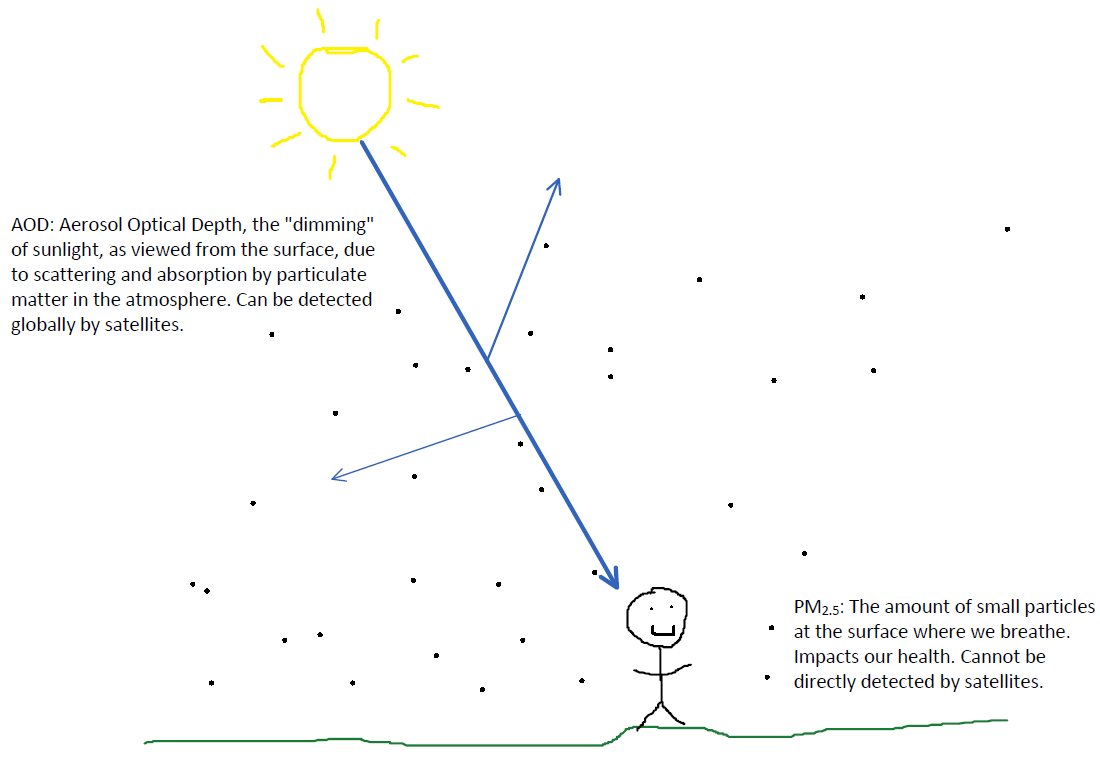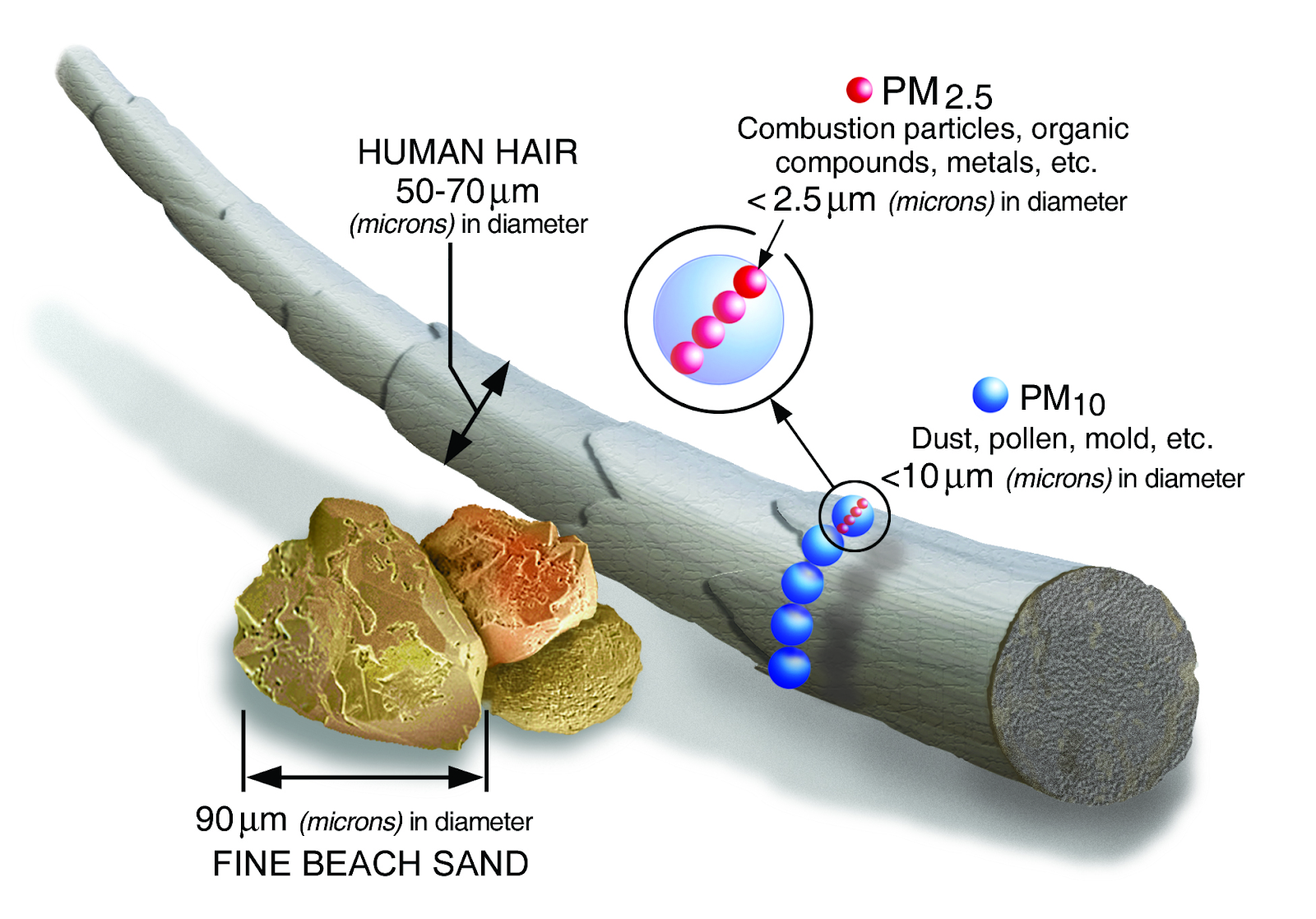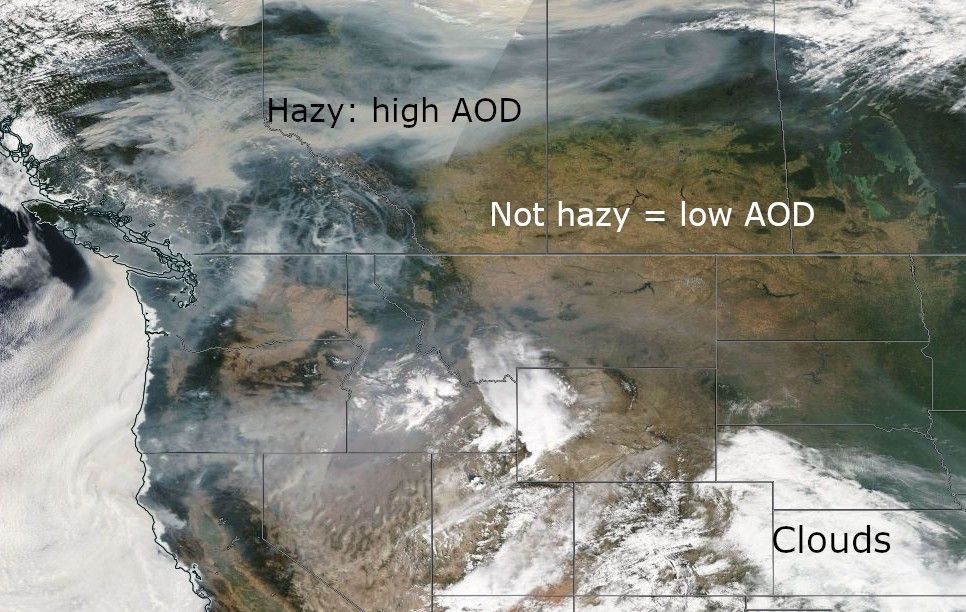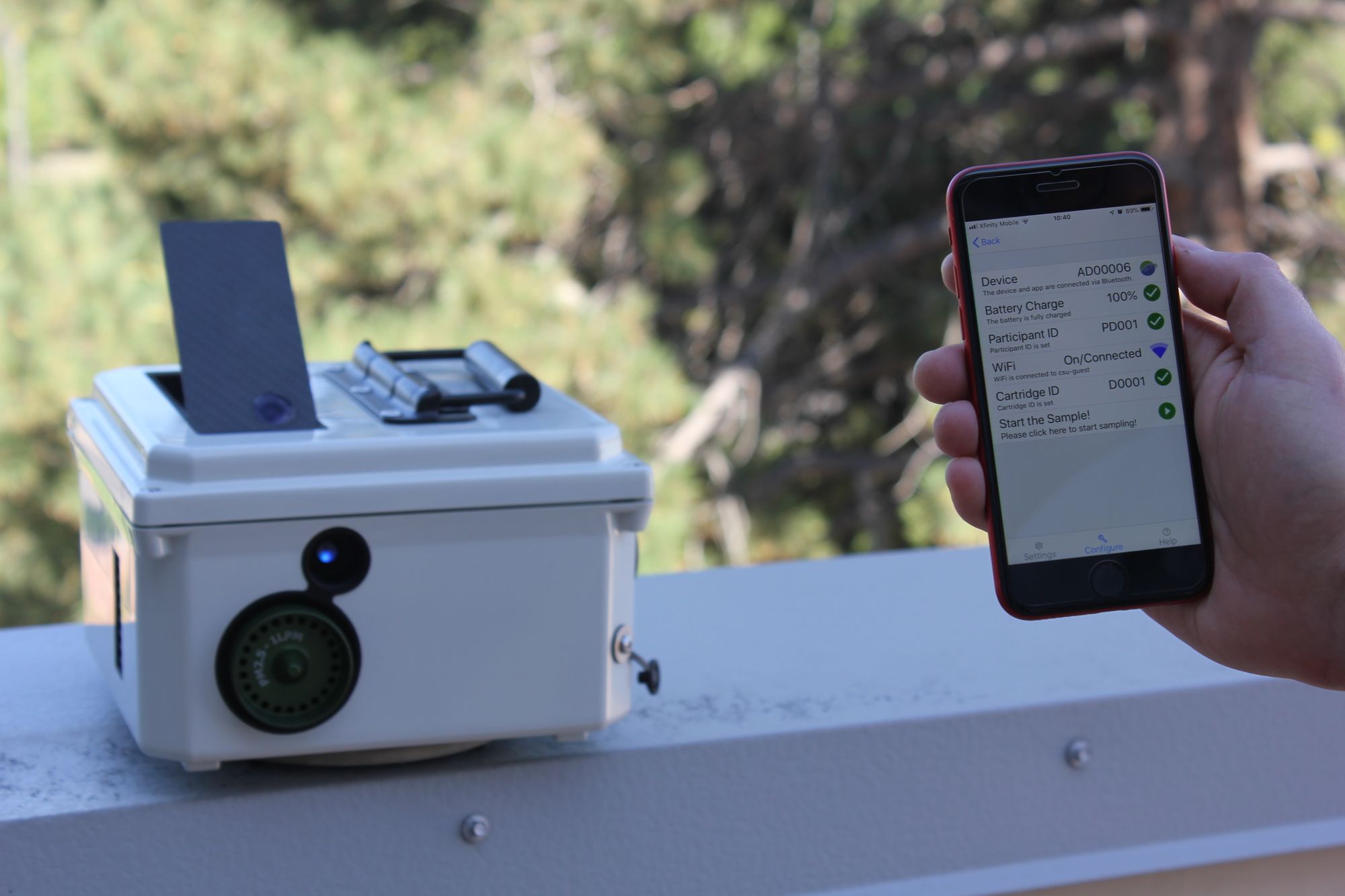By Jeff Pierce

Our devices measure two qualities of particles in the atmosphere. The first is called “PM2.5”, which is the mass of small particles in the air that we breathe at the Earth’s surface (more technically, it’s the total mass of particles that have diameters smaller than 2.5 micrometers per volume of air). To get a sense for how small these PM2.5 particles are, see the Figure 2 below.

Many studies have shown that breathing in a lot of PM2.5 is bad for your health. Bad air quality can affect asthma and even lead to heart attacks. The EPA watches over PM2.5 levels to help protect our health (PM2.5 has dropped dramatically in the US over the past 50 years, and we’re still getting cleaner!). However, the EPA’s PM2.5 monitors are limited to only a few per county. Some counties even have just one monitor. Many regions of the world completely lack PM2.5 measurements with air quality that is getting worse!
As PM2.5 is bad for human health, but is lacking in global measurements, scientists have been using measurements from satellites to help estimate PM2.5 around the Earth. Scientists can use how hazy a location on Earth looks from space to estimate aerosol optical depth (AOD). AOD is a measure of how much sunlight is scattered or absorbed by particles. In Figure 3, our eyes can easily see where there’s thick smoke, clouds, and clear sky. Like what our eyes can do, scientists can calculate locations of high AOD and low AOD.

However, satellite AOD values are not always a great measure of the PM2.5 that we breathe at the surface. What if the smoke in the image above was way up in the atmosphere, and not at the surface? The AOD would still look high to the satellite, but the air we were breathing would be clean.
We need measurements of both AOD and PM2.5 from the same location to help us understand the relationship between what the satellites “see” and what we breathe. The measurements that we are making will help scientists estimate the air quality in places where we do not have PM2.5 measurements!

